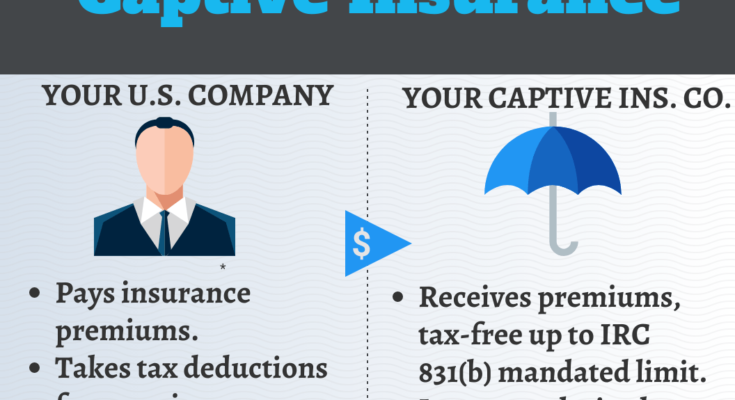To effectively deal with insurance agents in the USA, be clear about your needs & do your research beforehand. Ask questions to understand policy details & coverage options, & don’t hesitate to request multiple quotes to compare. Establish a relationship based on trust & transparency while being assertive about your budget & expectations. Take notes during discussions &, if needed, involve a trusted advisor. Follow up promptly to clarify any doubts, & review the policy carefully before making a decision to ensure it meets your requirements.
How to Effectively Deal with Insurance Agents in the USA: Tips & Strategies. Discover simple tips & strategies to effectively deal with insurance agents in the USA. Navigate conversations & get the coverage you need with ease!

Understanding Your Insurance Needs
Identifying your insurance requirements forms a key component in navigating discussions with agents. Each individual or family faces different circumstances, necessitating tailored coverage. Engaging in clear assessments of what protection you seek aids in streamlining communication with agents.
Consider reviewing personal assets, potential liabilities, & overall risk profile. Realizing what you could lose provides insights into suitable policies. Beyond general coverage, specific areas warrant consideration like health, auto, homeowners, or life insurance. This evaluation creates a prioritized list of essential coverages versus optional add-ons.
And another thing, examining previous claims or gaps in coverage enhances conversations. For example, if history shows frequent issues with one area (like auto accidents), addressing that matter during discussions helps insurance agents suggest tailored alternatives. A personalized approach typically yields better outcomes than generic advice.
Researching Insurance Companies
Delving into various insurance companies available across America enhances your ability when dealing with agents. A robust understanding of multiple providers equips you with negotiation power. Explore available companies, their offered products, & customer satisfaction ratings.
A comprehensive online search reveals customer reviews, financial ratings from agencies like A.M. Best, & claim settlement ratios. This data provides an inside look at an insurer’s reliability. Engaging in forums dedicated to insurance discussions also uncovers real experiences shared by others.
Cross-referencing your findings can strengthen comparative analysis. This information helps formulate questions ahead of meetings with agents, ensuring you get insights aligned with your findings. Statistics play a vital role while confirming your choices.
Preparing Questions for Agents
Formulating specific questions aids in steering discussions with insurance agents toward pivotal topics. A well-prepared list highlights important issues regarding policies or procedures. Such preparedness showcases your commitment while encouraging agents to provide detailed answers.
Inquire about coverage limits, deductibles, premium increments, & policy terms. Asking about discounts also opens up avenues for potential savings. And don’t forget, assessing whether agents are well-informed about niche offerings can expose unique options tailored for your situation.
Utilizing various communication channels such as emails or phone calls allows flexibility in question delivery. Recording responses serves as a reference, fostering clarity throughout discussions. Participation remains essential, ensuring agents recognize your involvement in decision-making.
Building Rapport with Your Insurance Agent
Establishing a positive relationship enhances interactions with insurance agents. A friendly demeanor fosters open dialogue, encouraging agents to share valuable insights. A collaborative atmosphere typically allows for better negotiation & personalized suggestions based on rapport built over time.
Begin conversations with small talk, creating a comfortable setting. Engaging in discussions about common interests (like local events or hobbies) eases tension. By transitioning smoothly into serious topics, agents may feel more inclined to assist & provide advantageous options.
Active listening remains critical in this process. Acknowledging what agents express aids in clarifying misunderstandings. In addition, showcasing genuine interest in their profession can forge stronger connections, promoting long-lasting relationships moving forward.
Negotiation Tactics for Premiums
Utilizing effective negotiation tactics can yield favorable reductions in premiums. Agents expect discussions surrounding rates; hence preparation serves well. Be upfront about your budget while still expressing a desire for comprehensive coverage.
Leverage your research to challenge proposed rates. Present alternative insurers’ pricing or policy details, illustrating that you have viable options. This strategy demonstrates an understanding of industry standards, compelling agents to reassess their initial offers.
It’s also advisable to inquire directly about potential discounts. Often, providers offer multi-policy or loyal customer savings. Being assertive in your requests emphasizes your readiness for discussions while simultaneously enhancing your standing as a considered client.
Utilizing Technology for Your Advantage
Technology offers various tools designed to assist consumers while navigating insurance discussions. Online quote comparison platforms enable easy reviews of relevant policies. For instance, aggregators help synthesize multiple options, simplifying side-by-side comparisons.
And another thing, mobile applications from reputable insurance companies facilitate instant communication. Monitoring notifications on policy renewals or new offerings enhances your awareness & preparedness. Staying informed ensures conversations with agents remain productive, avoiding repetitive queries.
Gathering all documentation electronically (like previous policies, claims history, etc.) streamlines processes during consultations. Having structured files accessible strengthens your position, showcasing thoroughness while emphasizing preparedness & organization.
Clear Communication of Expectations
Effectively articulating expectations aids in aligning dialogues with agents. Clearly define what you desire from coverage; this prevents misunderstandings regarding policy specifics. Make your priorities understood upfront whether concerning premium costs or coverage types.
If you ever feel confused about terminologies or concepts, don’t hesitate to ask for clarifications. Agents typically appreciate inquisitiveness, viewing it as a sign of involvement. This proactive approach may unveil options unavailable in regular conversations.
Consistent communication regarding updates or changes in your life (such as marriage, having children, or new assets) also proves beneficial. Notifying agents about significant life changes may result in better-suited policies moving forward.
Understanding Policy Terms Thoroughly
Investing time in comprehending policy terms leads to informed decision-making. Agents often provide documentation filled with industry jargon; deciphering these terms prevents unforeseen surprises later. Comprehensive understanding of coverage limits, exclusions, & conditions remains crucial.
Seek clarity on policies’ fine print. It’s beneficial for consumers to read through contracts carefully, asking agents for clarifications wherever required. Gathering insights into renewal conditions or claims process expectations prepares you for future interactions.
Never hesitate to address discrepancies found within documentation. Having everything documented ensures transparency between yourself & agents, resulting in more effective policy management afterward.
Merging Personal Experience with Knowledge
Throughout my journey dealing with insurance agents in the USA, I’ve navigated various challenges & learned important lessons. During my first experience purchasing auto insurance, I faced a plethora of options & complexities that initially overwhelmed me. Preparing detailed questions helped steer my discussions toward specifics I cared about. Establishing rapport with my agent also made the process smoother, resulting in more personalized service.
Employing negotiation tactics allowed me to secure a more favorable rate. I realized agents can be amenable if you approach them with prepared data & a clear understanding of your needs. My experience continually reinforces that transparency, diligence, & clear communication vastly improve dealings with insurance agents.
Additional Useful Strategies for Better Interactions
- Document all communications with agents including dates & subjects discussed.
- Request policy explanations in simple language if confusion arises.
- Reassess coverage at least annually for potential updates.
- Engage in periodic reviews with agents regarding required modifications.
- Utilize digital tools for managing & storing insurance documents.
- Attend local seminars focused on insurance literacy.
- Connect with other policyholders for shared experiences & insights.
Table of Questions to Ask Your Insurance Agent
| Question | Purpose |
|---|---|
| What are coverage limits on my proposed policy? | Understanding what amounts are covered. |
| Are there exclusions I should know about? | Recognizing any potential gaps in coverage. |
| How does this policy handle claims? | Clarifying procedures for filing a claim. |
Recognizing Red Flags during Discussions
Remaining vigilant for potential red flags during meetings with insurance agents helps avoid future regret. An agent’s inability or unwillingness to answer your questions should immediately raise concern. Such behavior may indicate inadequate knowledge or transparency, neither of which bodes well for consumer confidence.
If agents pressure you toward decisions or exhibit impatience, reassess their suitability. Ideally, agents should showcase a willingness to educate & support so you can make informed decisions. Clear hesitation or evasive answers serves as signals; seek alternatives when interactions feel uncomfortable.
Comparing quotes & premiums from multiple agents further strengthens your security. If one agent’s proposal seems disproportionately high without valid reasoning, pursue further investigation into likely competitive options.
Establishing a Focused Follow-Up Routine
Ironclad follow-up routines solidify relationships built throughout initial discussions. After meetings, continuing communication helps reinforce your expectations. If an agent committed to specific actions (like sending quotes), following up ensures they fulfill these promises on time.
Email reminders serve as timely nudges while reviewing missed opportunities or clarifications. Adopting this habit enhances professionalism & respect for both parties. Maintaining records aids in serving your interests as dialogues proceed.
Periodic follow-ups also help remain abreast of policy renewals or additional offerings. Agents may have valuable insights or new promotions that could benefit you; thus, nurturing this relationship contributes positively over time.
Evaluating Policy Performance Regularly
Regular performance evaluations of your insurance policy protect your coverage against gaps or unnecessary expenses. Schedule monthly, quarterly, or annual reviews with agents; providing ample opportunity for discussion regarding strengths & weaknesses of current policies.
During evaluations, address concerns such as value received relative to premiums paid, potential areas requiring enhancements, or shifts in life circumstances warranting coverage adjustments. Keeping open channels aids in detecting issues before they evolve into significant problems.
Staying proactive with evaluations builds rapport between you & agents while fostering optimization possibilities within your context. A mutual understanding of interests serves both parties well, promoting confidence in long-term relationships.
Table of Common Insurance Policy Types
| Policy Type | Key Features | Common Uses |
|---|---|---|
| Auto Insurance | Covers vehicle damage, injuries, liability. | Driving, owning a car. |
| Homeowners Insurance | Protects your home against damage, theft. | Owning a house. |
| Life Insurance | Financial protection for dependents after death. | Family planning, financial security. |
Seizing Opportunities for Recommendations
Agents often serve as valuable resources for suggestions beyond mere policy recommendations. Don’t hesitate to inquire about local services, specialists, or tools directly related to your insurance needs. This serves dual purposes enhancing your understanding of industry connections while strengthening professional relationships.
Asking for referrals can lead you toward reputable mechanics, contractors, or financial advisors who possess professional expertise. Such recommendations frequently derive from agents’ experiences, providing informed direction amidst potentially overwhelming choices.
Keep in mind; confidence-building within these networks proves advantageous as well. These introductions often lead to better service experiences along with fostering opportunities for future negotiations or reviews.

Conclusion
In summary, knowing how to effectively deal with insurance agents in the USA can make all the difference in getting the best coverage for your needs. Remember to ask questions, stay informed, & communicate clearly. Building a good relationship with your insurance agent can lead to better support & choices down the line. Don’t hesitate to shop around & compare options to ensure you’re making wise choices for your insurance needs. By following these tips & strategies, you’ll feel more confident & empowered while navigating the world of insurance in the USA. Happy insuring!



